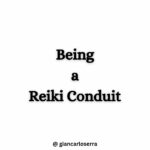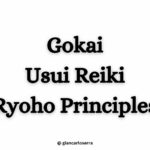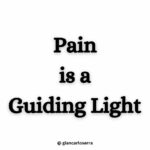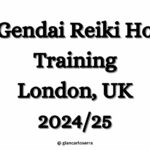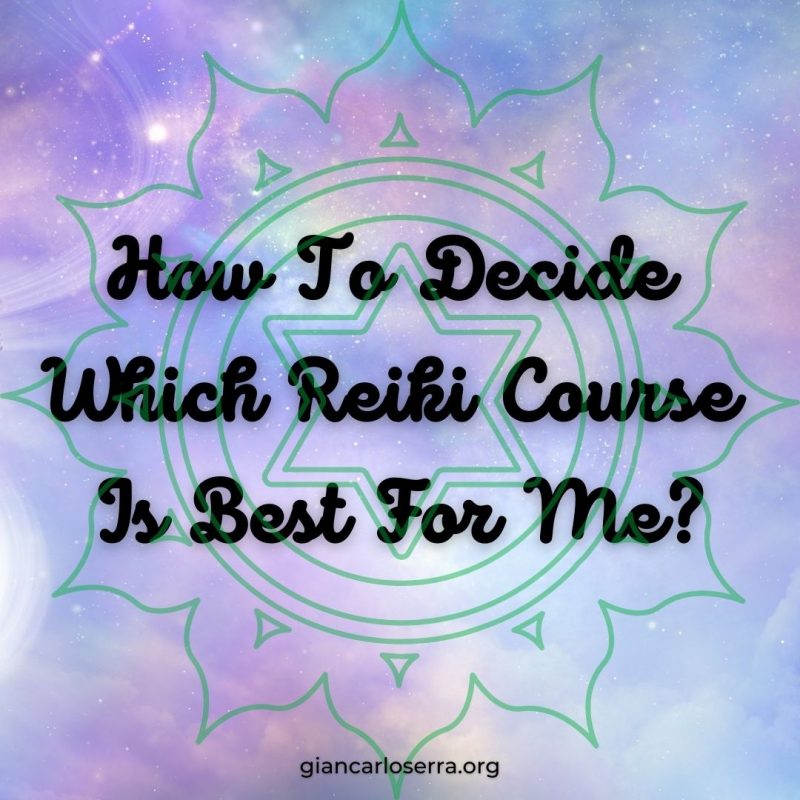
Where To Start
You have decided to learn Reiki- but where do you begin?
First of all, be aware of the reasons as to why you want to train in Reiki healing, what you expect from a Reiki course and what you are going to do with the tools you will receive in the training.
What you might expect, or be looking for in a Reiki course will probably be influenced by the following factors:
– your direct experience with receiving Reiki treatments.
– other people’s experiences.
– friends who are trained in Reiki.
– books and articles you have read on the topic.
So what you believe Reiki is, or what might be a good course of action regarding learning Reiki is likely to have many influences.
It is a common belief or assumption that all Reiki courses have the same content and teach the same thing.
Many Reiki Styles
There are many different Reiki styles that extend beyond the traditional Usui Reiki. Each style of Reiki has its own philosophies, symbols, and process of attunement. All Reiki styles follow the fundamental belief in a universal energy that helps emotional, mental, spiritual, and physical healing.
Some suggest there are over 1000 styles of Reiki, with many sub-styles stemming from primary methods of Reiki. Some styles of Reiki have also developed based on geography and the relevant cultural beliefs of each region including Tibet, India, and Egypt.
Some more popular styles of Reiki that have developed over time from Usui Reiki are: Blue Star Reiki, Karuna® Reiki, Lightarian Reiki, Satya Japanese Reiki, Rainbow Reiki, Tibetan Reiki, Seichim Reiki, Shamballa Reiki, Holy Fire® Reiki, Raku Kei.
Learning any Reiki is a gift and can be helpful to people, so certainly any Reiki training is better than none.
However you need to bear in mind that as great as any Reiki teacher might be, if what you are being taught has misunderstandings about Reiki within its teachings, or is not what you are looking for, you are unlikely to be satisfied with the training you receive.
This may leave you feeling disheartened with the experience and drop out of practising Reiki in the future, or you may later come to the realisation you need to take additional Reiki training to get what you were looking for in the first place.
To determine which Reiki course is right for you, first determine if you are drawn to traditional, authentic teachings, or are looking for teachings that have developed and evolved from the authentic teaching.
Professional Reiki Organisations And The Complementary And Natural Healthcare Council
It is always a good idea to look for any Reiki courses that are approved and accredited. A number of professional organisations in the UK set the highest standard for Reiki. Approved courses are a guarantee of a good course structure, best practice, a good level of professional practice, and accuracy of the teachings.
There are a number of professional organisations formally approved the Complementary and Natural Healthcare Council (CHNC) as verifying organisations for Reiki practitioners wishing to apply for CNHC registration.
The Complementary and Natural Healthcare Council (CHNC) is the UK voluntary regulator for Complementary Health Practitioners. Ii is not a membership organisation but a voluntary regulator. CNHC act in the public interest and are the only organisation set up with government support for this purpose.
The following are some of professional organisations and associations in the United Kingdom:
– UK Reiki Federation
– The UK Reiki Connection
– The Reiki Guild
– The Reiki Association
Professional Associations act in the interests of their members, providing insurance services or access to insurance, providing training and CPD events, and providing guidance and support.
The Complementary and Natural Healthcare Council Our holds register that has been accredited by the Professional Standards Authority and government – it is recommended that when people are looking for a health practitioner who is not regulated by law, they only consult a practitioner on an accredited register.
> CNHC Accredited Register of Complementary Health Practitioners
Reiki and Holy Fire® Reiki
If you have made a decision to take one of these two classes but you are not sure which one, the post below may give you some useful information on both Reiki styles.
The following advice may save you time and money. Feel free to contact me for further clarification.
If you have no experience and intend to learn Reiki for yourself
You have a choice between training in Reiki 1 and Usui/Holy Fire® III Reiki, I & II. Both classes attune you to the flow of Reiki, which you can use straight after the class, practicing the hand positions for self-healing.
Reiki 1 focuses on self-healing, while Usui/Holy Fire® III Reiki, I & II focuses on self-healing, giving healing treatments to family/friends, in-person and remotely.
Reiki 1
– Duration: 2 days, 16 hours in total.
– Delivered: in-person only.
– Entry Requirements: none.
– Accreditation: this training complies with the National Occupational Standards for Reiki in the United Kingdom and it has been accredited by the Complementary and Natural Healthcare Council.
– Focus: Self-Healing.
– Content: Reiki history, Japanese techniques, hand-positions for self-healing, practice of self-healing techniques.
– Attunement: 1 face-to-face individual attunement.
– Manual: ‘Reiki: The Healing Touch‘ Paperback, by William Lee Rand.
– Membership of Professional Reiki Organisations/Associations: you can join the UK Reiki Federation as an Associate Member. This qualification is also accepted for membership by other Reiki organisations in the United Kingdom.
– Certification: This course is fully certified.
– Can I work professionally? No, you need to take least Reiki 2 training to be able to work professionally with Reiki. If you intend to work or volunteer in hospices, hospitals, health centres in the United Kingdom, you need to consider receiving the CNHC quality mark by attending an accredited course.
– Can I teach Reiki?: No, you need to take the Reiki 2 qualification (after at least 3 months) and then the Reiki Master qualification (after at least 6 months).
– Is This Couse Part of The Professional Reiki Practitioner Diploma? Yes.
– Next Step: Reiki 2 training after at least 3 months.
– What about the energy? The energy is very powerful and can be evolved and refined over time.
– Can I get insurance: yes.
Usui/Holy Fire® III Reiki, I & II
– Duration: 1 day, 8 hours in total, but it is part of a 2-day course.
– Delivered: in-person and online.
– Entry Requirements: none.
– Accreditation: at this moment this training is not accredited in the United Kingdom. This training complies with guidance from the International Center for Reiki Training.
– Focus: Self-Healing, Reiki treatments to friends and family, in-person and remotely, practice of self-healing techniques and distant healing techniques.
– Content: Reiki history, Japanese techniques, how Usui Reiki evolved in Holy Fire Reiki, hand-positions for self-healing, practice, hand positions for giving a Reiki treatment to friends and family, in-person and remotely, distant healing, practice.
– Attunement: 1 attunement, called Placement in this system, face-to-face group placement (in-person classes) or distant placement (online classes).
– Manual: ‘Reiki: The Healing Touch’ Paperback, by William Lee Rand (in-person classes and online classes – participant resides in the UK); digital manual for online classes – participant resides outside of the UK.
– Membership of Professional Reiki Organisations/Associations: Not in the United Kingdom.
– Certification: This course is fully certified. Digital certificates are given for online classes.
– Can I work professionally? No, you need to take the Holy Fire® Reiki Master class.
– Is It Part of The Professional Reiki Practitioner Diploma? No, it is not.
– Can I teach Reiki?: No, you need to take the Holy Fire® Reiki Master qualification.
– Next Step: Holy Fire® Reiki Master training after at least 6 months.
– What about the energy?: It is both powerful and gentle, noticeably more refined that Usui energy and it comes from a higher level of consciousness.
– Can I get insurance: yes.
What You Need To Bear In Mind Before Choosing
– If you are only interested in Reiki energy, and you are not planning to register with Reiki organisations or working in hospitals/hospices, you can train in Usui/Holy Fire® III Reiki, I & II, and then Master level. You may even consider training in Holy Fire® Karuna® Reiki. You will be able to offer Holy Fire® treatments to friends, family, clients and teach the Holy Fire® system of Reiki.
– If you want to work professionally with Reiki, including hospices, hospitals, health centres, start with the Usui system and take Reiki 1 and Reiki 2 classes. You can then consider achieving the CNHC quality mark by attending an accredited course. If you later decide to learn Holy Fire® Reiki, you can take the Holy Fire® Reiki Master class after at least 6 months of taking the Reiki 2 training.
– If from the beginning you are certain that you want to take the Usui training and the Holy Fire® Reiki training, take the Usui training first so that you will be able to appreciate the higher vibration offered by Holy Fire® Reiki energy.
– It is absolutely fine if you decide to take Holy Fire® Reiki training first and then Usui training, you may not be able to appreciate the difference in energy but it is very valuable having trained in both systems.
What I suggest
– You intend to train in both systems, and your main interest is the energy: Reiki 1 -> Reiki 2 -> Reiki Master -> Holy Fire® III Karuna® Reiki Master.
– Your are only interested in Reiki energy: Usui/Holy Fire® III Reiki, I & II, -> Usui/Holy Fire® III Reiki, Master -> Holy Fire® III Karuna® Reiki Master (optional).
– You want to work professionally and have a private practice: you can train as a Reiki Master in either the Usui system or the Holy Fire® system.
– You want to work professionally, have a private practice and work in hospices, hospitals, health centres in the UK: Reiki 1 -> Reiki 2 -> The Professional Reiki Practitioner Diploma. You may then consider taking the Reiki Master or the Usui/Holy Fire® III Reiki, Master.
– You want to work professionally and teach Reiki: The Reiki Master qualification enables you to teach in-person Reiki 1, Reiki 2 and Reiki Master classes.
— The Usui/Holy Fire® III Reiki, Master qualification enables you to teach Usui/Holy Fire® III Reiki, I & II and Usui/Holy Fire® III Reiki, Master classes, in person and online.
— The Holy Fire® III Karuna® Reiki Master qualification enables you to teach Usui/Holy Fire® III Reiki, I & II and Usui/Holy Fire® III Reiki, Master and Holy Fire® III Karuna® Reiki Master classes, in person and online.
– If you train: Usui/Holy Fire® III Reiki, I & II, -> Usui/Holy Fire® III Reiki, Master -> Holy Fire® III Karuna® Reiki Master you can teach in-person Reiki 1 + Reiki 2 + Reiki Master classes AND Usui/Holy Fire® III Reiki, I & II + Usui/Holy Fire® III Reiki, Master + Holy Fire® III Karuna® Reiki Master classes, in person and online.
Giancarlo is a fully qualified Hypnotherapist and Past Life Regression Therapist. He is a registered with the Complementary & Natural Healthcare Council, the Federation of Holistic Therapists, the Spiritual Regression Therapy Association and the General Hypnotherapy Register. Read more.















